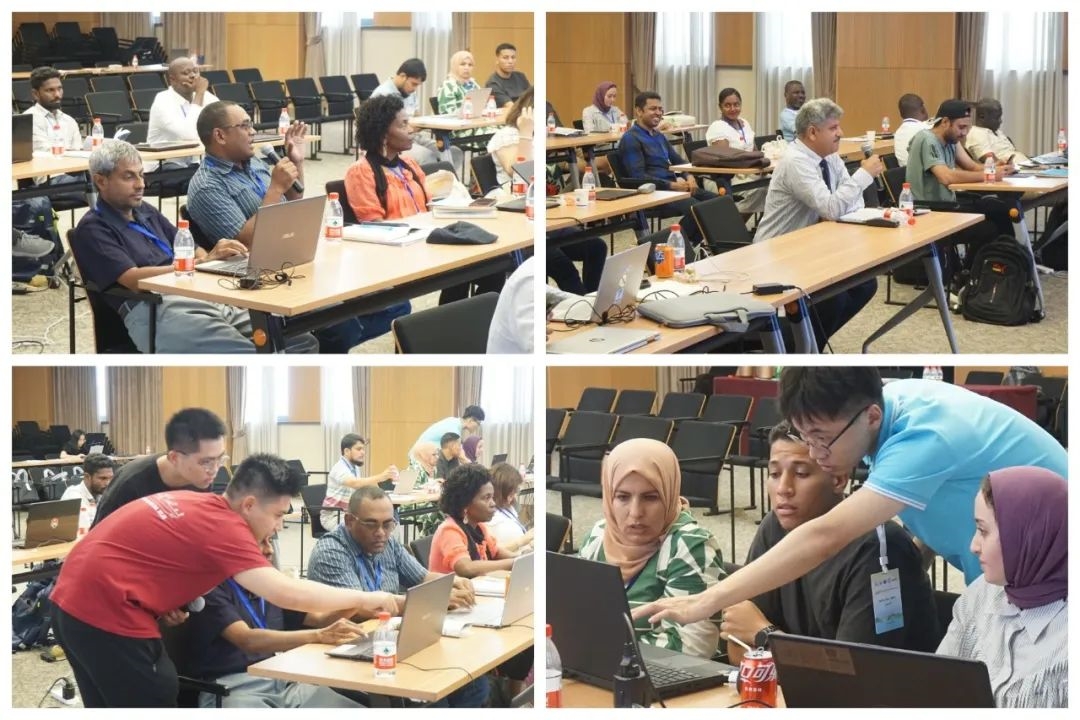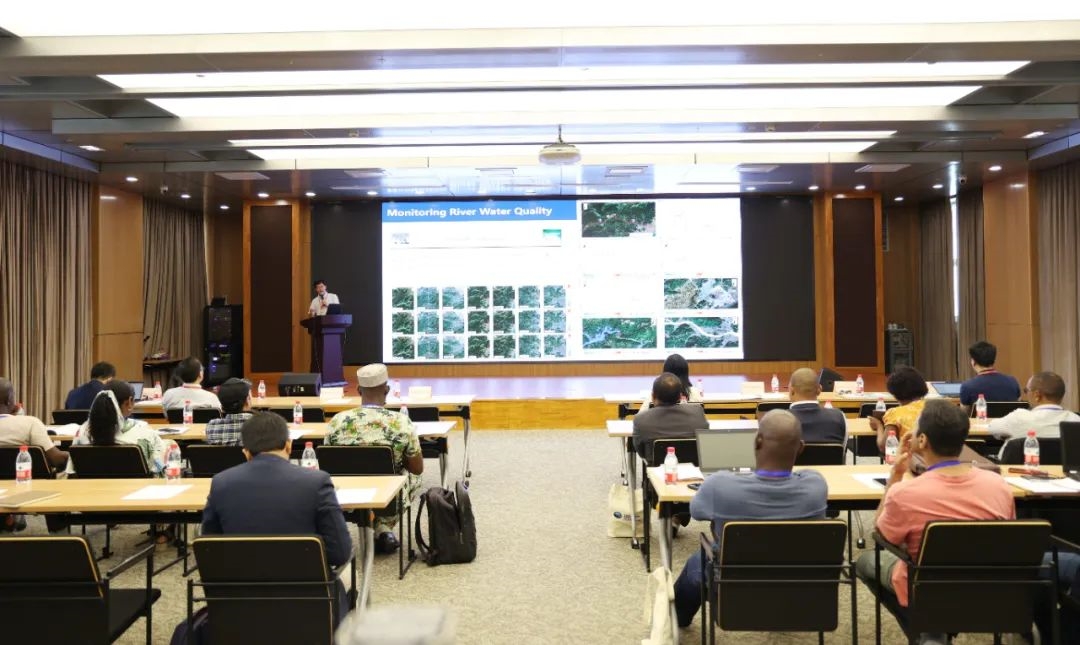


This training course was hosted by the Second Institute of Oceanography hosted by the State Key Laboratory of Satellite Marine Environmental Dynamics, and funded by the China Ocean Development Foundation. The one-week course (July 18th to July 24th) will cover lectures on profiling buoys, coastal zone remote sensing and models, marine ecological remote sensing, and hands-on training on Argo data and SatCO2 software.
A total of 21 foreign students from 13 countries participated in this SatCO2-V training course, including 17 overseas students and 4 domestic students from Cote d'Ivoire, Tunisia, Egypt, Mozambique, Gambia, Angola, Tanzania, Mauritius, Bangladesh, India, Pakistan, Togo, Madagascar and other countries.
This training course will make use of the leading talents, technology and platform advantages of the Second Institute of Oceanography in remote sensing and other aspects to provide marine ecological environment remote sensing and three-dimensional monitoring technology training and data support to developing countries such as Africa, and build a joint-venture cooperation platform between China and developing countries such as Africa. A mutually beneficial and win-win scientific and technological exchange channel in the field of marine environment monitoring. We will take this opportunity to carry out multi-level cooperation and exchanges, gradually promote the global accuracy inspection of China's independent ocean remote sensing satellite products and bio-optical buoys, expand the application types of China's remote sensing and buoy reanalysis data product development, and improve the reliability of data products. performance and precision.
At the opening ceremony, Chen Jianfang, deputy director of the Second Institute of Oceanography, welcomed the students and said that the Second Institute of Oceanography has established solid cooperative relationships with marine scientific research institutes in many African countries and will continue to carry out marine scientific surveys and blue economy. Cooperation and talent development and training. It is hoped that by participating in the training course, the trainees will become envoys of China-Africa maritime cooperation and bring cutting-edge knowledge and technology back to their host countries to promote the development of ocean remote sensing and Argo buoy monitoring technologies in various countries.
Subsequently, Wang Yuntao, deputy director of the Satellite Marine Environmental Dynamics Laboratory of the Second Institute of Oceanography, introduced the basic situation of international cooperation and exchanges between the two institutes and the cutting-edge of three-dimensional ocean observation technology. Researcher He Xianqiang introduced the progress of China's ocean water color satellites and application technology.
After the ice-breaking ceremony in the afternoon, under the leadership of researcher Wang Yuntao, the students visited the Hangzhou Station of the National Marine Satellite Ground Station and the exhibition hall of the Second Institute of Oceanography, etc., to further deepen their understanding of the Second Institute of Oceanography.
It is reported that the trainees will also participate in the China-Africa Marine Science and Blue Economy Cooperation Seminar hosted by the Second Institute of Oceanography on July 25.



